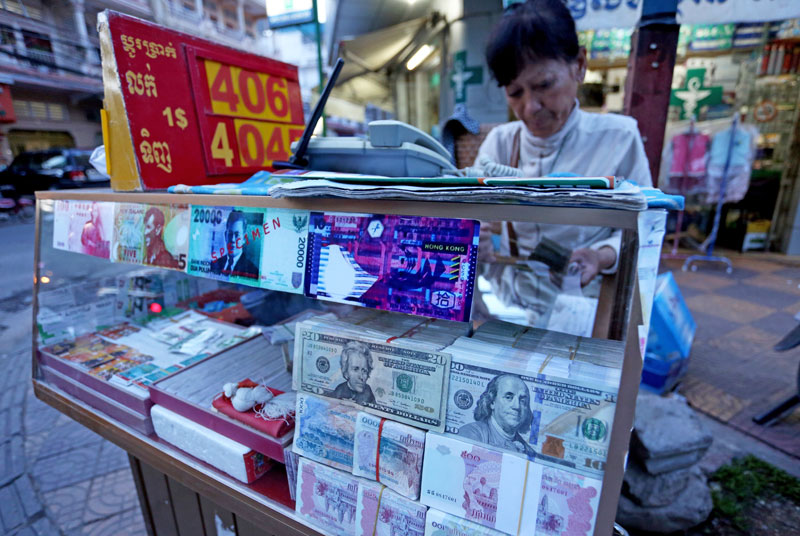Cambodia’s rising wages and consumer demand for food and fuel is expected to push up inflation this year, a regional research agency said following a country visit.
The ASEAN+3 Macroeconomic Research Office (AMRO) estimated that Cambodia’s inflation rate would rise to about 4 percent this year, up from 3 percent last year, according to a media statement released on Monday about the visit, which concluded on June 28.

Seung Hyun Hong, lead specialist for surveillance at AMRO, said food and fuel costs would drive the inflation, and noted that food items in particular made up about 45 percent of Cambodia’s Consumer Price Index (CPI) basket.
“Headline inflation in Cambodia has been mainly driven…by food and fuel-related items,” he said.
Miguel Chanco, lead Southeast Asia analyst for financial advisory agency the Economist Intelligence Unit, said his agency forecast a similar bump in the inflation rate because of rising global oil and commodity prices.
“To be sure, food prices are also a concern, owing to their rebound globally since late 2016 and the fact that Cambodia has now had a few years of weak agricultural sector growth domestically,” he said in an email.
The World Bank said prices increased 4.3 percent in the year to March, pushed up by domestic demand, which has been on the rise thanks to higher wages.
AMRO echoed other agencies’ predictions of robust GDP growth this year, at 6.9 percent, based on sustained growth in the garment, construction and tourism industries.
“Headwinds to growth emanate from rising labor cost and ongoing adjustments in the real estate sector,” it added, and suggested that the government work toward reducing logistics and electricity costs.
AMRO, a research agency set up in Singapore in 2011 to support a regional currency-swap agreement between Asean states, China, Japan and South Korea, conducts similar surveys of each member country’s economies annually.



